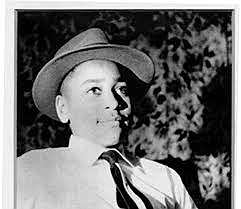Lawmakers took a historic vote on Wednesday when the House of Representatives passed legislation to make lynching a federal crime.
The House passed HR 35, anti-lynching legislation introduced by Democratic Rep. Bobby Rush of Illinois, called the Emmett Till Antilynching Act. Fourteen-year-old Till was brutally murdered in a racist attack in Mississippi in 1955, an event that drew national attention to the atrocities and violence that African Americans have faced in the United States and became a civil rights rallying cry.
The measure passed with broad, bipartisan support in a 410-4 vote. Independent Rep. Justin Amash voted against the bill along with three Republicans: Thomas Massie, Ted Yoho, and Louie Gohmert.
Yoho told CNN that he voted against the measure because the bill is an “overreach of the federal government” and tramples on state’s rights.
House Speaker Nancy Pelosi spoke on the floor ahead of the vote in support of the measure, saying, “Today Congress has an opportunity to acknowledge its responsibility for its historic failure to confront and end the horror of lynching in America.”
The measure approved by the House was amended prior to the vote on final passage to sync up with anti-lynching legislation that has already passed the Senate.
The Senate bill, called the Justice for Victims of Lynching Act, makes lynching a federal crime by establishing it as a new criminal civil rights violation. The legislation would amend federal civil rights law to explicitly include provisions on lynching.
It passed the Senate last year by a unanimous vote and was sponsored by the Senate’s three black members: Democratic Sen. Kamala Harris of California, Democratic Sen. Cory Booker of New Jersey and Republican Sen. Tim Scott of South Carolina.
A senior Democratic aide told CNN on Monday that the House bill would be amended to carry the language of the Senate bill, but would keep the House’s title in honor of Till.
Since the bills still have different titles and numbers, additional action will be necessary in one of the two chambers before the legislation can go to the President’s desk, and the Senate is expected to next take up the House-passed legislation.
Rush and House Majority Leader Steny Hoyer said at a news conference ahead of the House vote that they anticipate the Senate will pass the legislation before the end of the week.
The measure had been expected to pass the House with at least a two-thirds majority since it was considered under a process used in the lower chamber for legislation with broad, bipartisan support.
The text of the legislation outlines the violent and racist legacy of lynching in the United States and the many earlier, and unsuccessful, attempts to enact federal anti-lynching legislation into law.
“The crime of lynching succeeded slavery as the ultimate expression of racism in the United States following Reconstruction,” the bill states, adding that “at least 4,742 people, predominantly African Americans, were reported lynched in the United States between 1882 and 1968.”
The bill notes that “nearly 200 anti-lynching bills were introduced in Congress during the first half of the 20th century,” and “between 1890 and 1952, 7 presidents petitioned Congress to end lynching.”
The legislation states, “Only by coming to terms with history can the United States effectively champion human rights abroad.”
This story has been updated with additional developments Wednesday.
